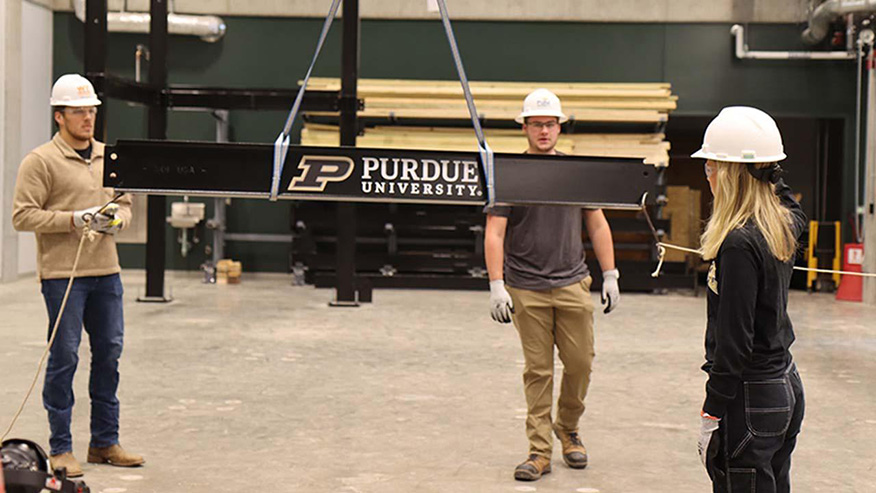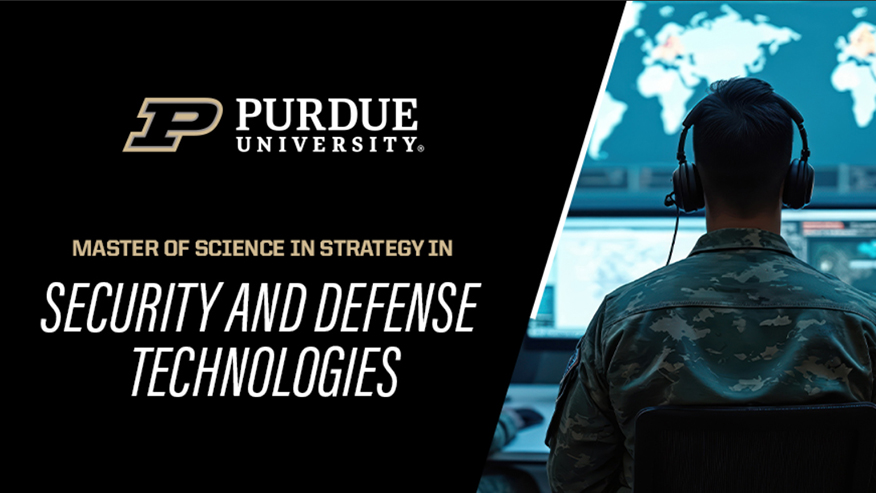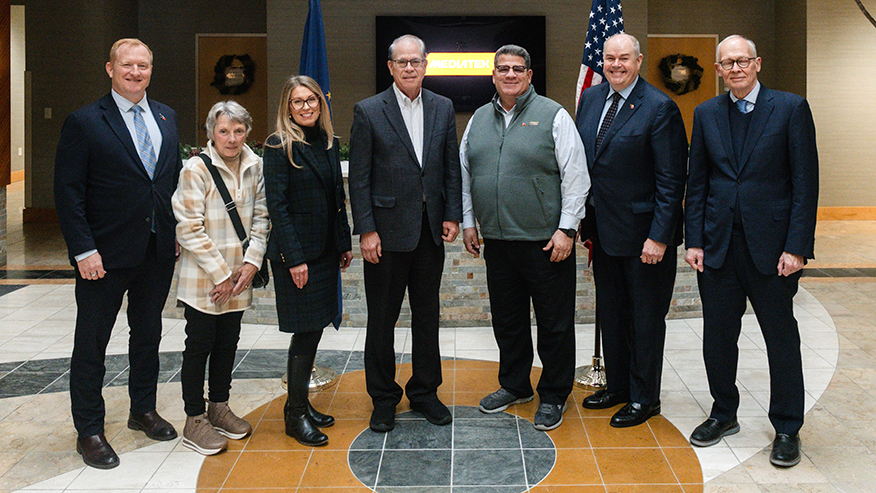Purdue professor foresees AI as catalyst for transformation in manufacturing and workforce
Congressional briefing explores future workforce development needs in the growing AI and STEM fields.

(left to right) Diana Gehlhaus, Chief Digital and Artificial Intelligence Office, U.S. Department of Defense; Yelena Vaynberg, Government & Regulatory Affairs Executive, IBM; Dr. Karthik Ramani, Donald W. Feddersen Distinguished Professor in Mechanical Engineering and Electrical & Computer Engineering, Purdue University; Dr. Jonathan Cagan (Moderator), Professor and Head of Mechanical Engineering, Carnegie Mellon University. (Photo courtesy ASME/IEEE)
WEST LAFAYETTE, Ind. —
In the midst of rapid artificial intelligence expansion, Purdue engineering professor Karthik Ramani offers a positive perspective. He believes AI holds immense potential for bolstering manufacturing competitiveness, revolutionizing product design, democratizing programming and ushering in a workforce revolution.
Ramani, the Donald W. Feddersen Distinguished Professor of Mechanical Engineering, who also holds appointments in electrical and computer engineering and the College of Education, shared these insights at a congressional briefing held at the Hart Senate Building in Washington, D.C., hosted by the American Society of Mechanical Engineers, the Institute of Electrical and Electronics Engineers, and the U.S. Senate Artificial Intelligence Caucus.
Ramani envisions AI birthing entirely new industries and reshaping education across disciplines in ways yet unimagined.
“Unlike previous technologies, the impact of emerging AI on jobs differs, with upper-middle-skill positions, particularly in high-salary brackets like computer programming, being the most exposed,” Ramani said. He said those who align with AI will gain a competitive edge, “as job opportunities will emerge in fields yet to be conceived, creating new specializations in AI-driven development, integration and maintenance. The true extent of AI’s transformative power exceeds current imagination, offering new frontiers for human achievement.”
Drawing parallels to past technological revolutions, Ramani underscores AI’s potential to absorb labor and enhance productivity.
“At the beginning of every technological revolution, fears spread that technology will wipe out many jobs. In each past technological revolution, jobs were automated, but other jobs were created because the surplus wealth created by technology was spent on more labor-intensive industries,” Ramani said.
However, he acknowledges that bottlenecks in workflows remain a challenge for immediate widespread AI integration. Ramani asserts that the diffusion of AI outside computer sciences is as pivotal as the technology itself, necessitating a redesign of education, talent training and reimagining business processes around AI.
The panel discussion delved into the imperative for Congress and federal agencies to invest in AI tools for workforce development, emphasizing the essential institutional resources needed to advance U.S. competitiveness in AI-driven technology applications across educational fields and industries.
Ramani highlighted AI’s catalytic role in fostering diverse industries, from AI-powered health care and telemedicine to autonomous transportation, AR/VR experiences, precision agriculture, clean energy solutions, cybersecurity, personalized fashion, AI-driven finance, smart city management, educational technology, AI-powered content creation, machines and robotics control software, and genomics-driven personalized medicine.
“These burgeoning sectors are set to create new pathways for employment, signifying the profound impact of AI across various domains,” Ramani said.
Ramani envisions a future where humans specialize in tasks and industries that AI cannot replicate, such as caregiving for children and the elderly. He emphasizes that AI, while proficient, cannot replace the unique human connection.
He emphasized that Purdue’s role in empowering workforce productivity and talent through AI in manufacturing and design is crucial.
“Well-designed AI has the potential to upskill individuals on the job, reducing the need for extensive skilling programs. Seizing AI opportunities in the coming decade can substantially enhance human capabilities, potentially propelling the U.S. economy to greater heights.”
About Purdue University
Purdue University is a public research institution with excellence at scale. Ranked among top 10 public universities and with two colleges in the top 4 in the United States, Purdue discovers and disseminates knowledge with a quality and at a scale second to none. More than 105,000 students study at Purdue across modalities and locations, with 50,000 in person on the West Lafayette campus. Committed to affordability and accessibility, Purdue’s main campus has frozen tuition 12 years in a row. See how Purdue never stops in the persistent pursuit of the next giant leap, including its first comprehensive urban campus in Indianapolis, the new Mitchell E. Daniels, Jr. School of Business, and Purdue Computes, at https://www.purdue.edu/president/strategic-initiatives.
Writer/Media contact: Wes Mills, wemills@purdue.edu
Source: Karthik Ramani, ramani@purdue.edu



